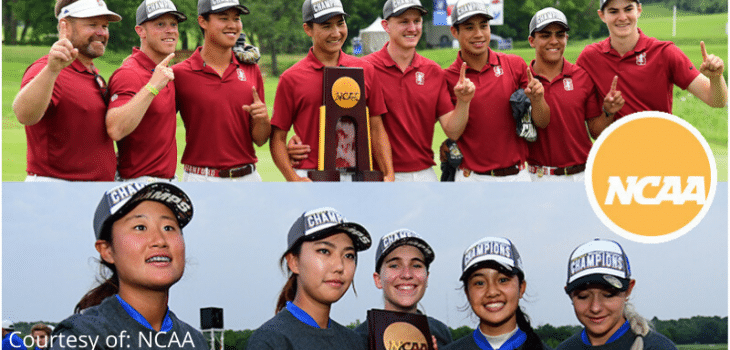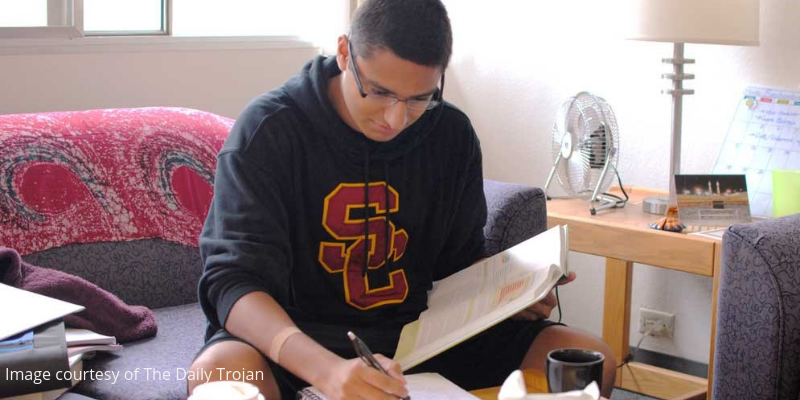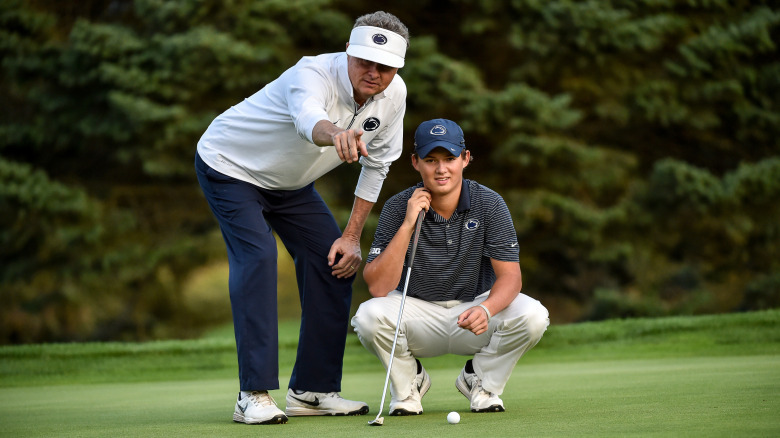
This article was authored by, Nicky Goetze.
Since 2011, Nicky has specialized in providing expert guidance to families who are pursuing college golf. He’s a 3-time All-American at Clemson, and a former Division 1 head coach for the FSU Seminoles and Mississippi State Bulldogs.
In addition to Nicky’s consulting work, he shares his experienced perspective to junior golfers and their parents on Junior Golf Scoreboard’s Going to College column. Also, the American Junior Golf Association features Nicky as an official College Golf Advisor.
We’re excited to have Nicky contribute to NHSGA’s content, and we know you’ll benefit from his advice.
—-
Do You Have What It Takes to Play College Golf?
Learn what coaches are looking for to gain a recruiting edge.
If you’re engaged in the recruiting process, you might be wondering what college coaches are looking for in an ideal recruit. Of course, coaches look for different levels of players depending on the caliber of their team. But I believe all coaches are looking for junior golfers who possess key attributes (as golfers, students and people) that will set the stage for achievement during their college career.
Rankings & Scores Aren’t Everything
If you’re like a lot of junior players, you’re checking your rankings. Hey, I get it. You want to know where you stand… and coaches definitely look at rankings (JGS, Golfweek-Sagarin, AJGA Rolex and even WAGR) as a part of their research. Just remember that rankings help coaches build a list of qualified recruits, but aren’t a primary tool they use for decision making (more on this later in this article).
Coaches also pay attention to how juniors fare when competing in strong tournament fields and on difficult courses. College golf plays harder than junior golf, so they like to see who shines on the big stage. And don’t forget about wins and low rounds. Winning at any level draws interest and a sprinkling of under-par scores moves the needle too. Coaches are not seeking “perfect” junior golfers, but these data points (and the rankings) begin to direct coaches toward prospects who are performing at a level that aligns with their preferred recruiting profile.

Make the Grades
Strive to attain the best grades and SAT/ACT scores you can during your high school years. Coaches know strong students will be more equipped to handle the challenges of balancing academic and golf responsibilities in college especially when missing classes due to team travel. Academic achievement also indicates that prospects will be dedicated as they go about their studies and manage their time well. Both of these traits contribute to the success of a student-athlete in college.
Lastly, strong academics may open doors to schools and golf programs that require higher level GPAs and test scores. You can earn more money too since coaches are often able to pair academic awards with athletic scholarship.
Real Recruiting Happens on the Road
Having said all of this, if scores, rankings, grades and test results were the only items used to evaluate players, coaches could just recruit at home via the internet. But there’s more to the evaluation process.
Coaches attend many junior tournaments each year to learn about recruits they’re interested in. They will observe players on the practice facility and on the golf course. What are they looking for? Well, often it’s things kids wouldn’t expect. Let me explain.
What Are Coaches Looking For?
On the practice area, coaches take their “coaching pose” and stare with what feels like x-ray vision to begin looking at your overall skills and technique. Keep in mind, your technique doesn’t have to be textbook (unique swings, wedge play, and putting styles are okay) but coaches hope to see a fairly repeatable system that converts.
Athleticism and fitness are two other key factors coaches will take note of. College tournaments have course set-ups that are longer than those in junior golf, plus many 36-hole days are a part of college level competition. Because of these realities, coaches favor juniors who are physically fit and are able to generate ample power and distance with the driver. TPI offers top-notch golf fitness education if you have a need.
Coaches also like to see junior golfers training with a purpose. Sure, brief warm-ups might be fairly simple with just a quick run through the bag. But think about your post-round sessions. Are they focused? Do you use specific drills or training devices (alignment aids, putting boards, etc.)? Is a pre-shot routine something you rehearse? All sophisticated players practice in a structured and mindful way, and you should too. Being a golf-nerd is totally cool, and coaches dig that.

It’s Game Time – Coaches Are Still Watching
As coaches head onto the golf course to watch kids in action during tournament play, they can pick up on several other key attributes, many of which are revealed most fully in the heat of competition.
A positive, gritty attitude is definitely something coaches hope they find. Ups and downs are a part of tournament golf, and when tough holes or rounds occur, coaches are very interested to see which players can handle adversity and maintain their composure. In the crucible of team golf in college, one stroke can make all the difference. Coaches know that recruits with great attitudes will provide a competitive advantage. So, when you compete it’s okay to get frustrated. Just keep on grinding.
Along these lines, coaches love it when they see a junior player who is strategic about course management. Even when mis-hitting shots, the player’s “pre-selected” targets allow his ball to stay in good position. Short-sided approaches and penalty stokes are all but eliminated. Recoveries become easier… and big numbers are taken out of play. This is a dream for coaches, and it can be a reality for you by making sure you prep for tournament rounds by developing a thoughtful game plan. DECADE can help.
Lastly (and this is huge) coaches are looking for mature, good-hearted kids who are kind and generous to their peers, parents, tournament staff and others. Youngsters possessing these qualities will be very coachable. They’ll also bond nicely with their future teammates and become valuable ambassadors for the program. Bringing in recruits who conduct (and present) themselves in a professional manner translates into tons of upside for coaches. Always keep this in mind.
You Can Do This!
As you can tell, coaches look far beyond the scores and rankings as they narrow down their list of candidates to find a few special junior golfers in each recruiting class. Now that you know what their looking for, you’ll have an advantage as you proceed with your recruitment. Use my notes to assess your situation and plan your next steps… little by little, you’ll be on your way to big progress. You can do this!
To your success,
NICKY GOETZE
P.S. For more articles like this one, go to my archive on Junior Golf Scoreboard. Also, if you want to learn more about how to get started with your journey toward college golf, or how to make your next steps the right ones, you’re welcome to reach me at nickygoetze.com.